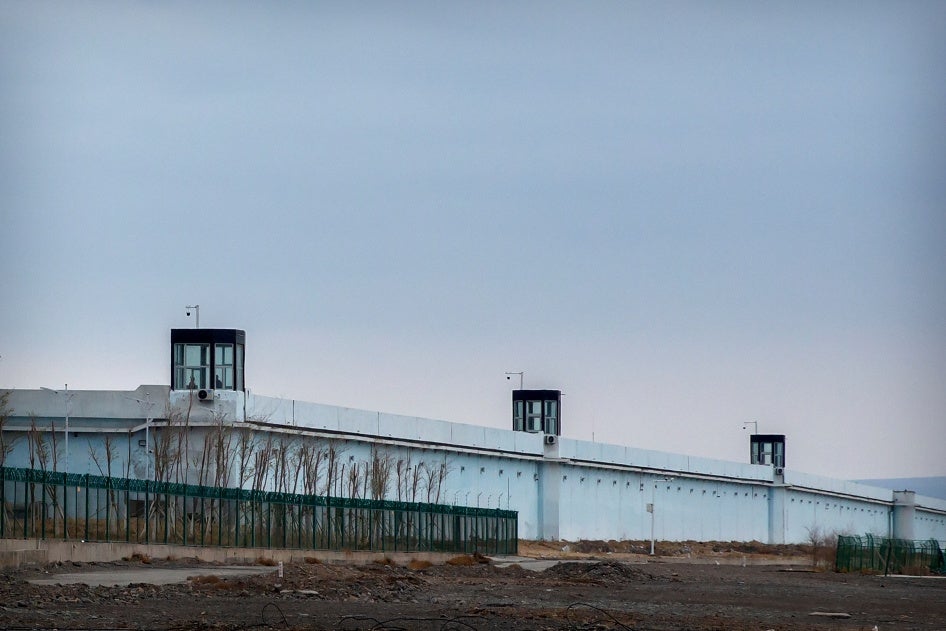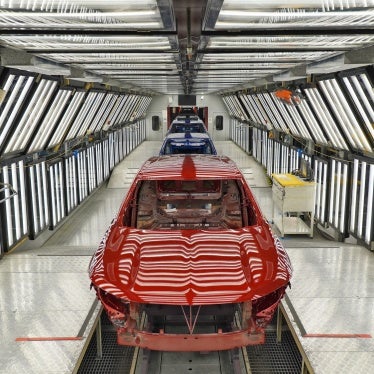On Tuesday, the United States government added aluminum to its list of priority sectors for the enforcement of the Uyghur Forced Labor Prevention Act. The law aims to block any good made in China’s Xinjiang Uyghur Autonomous Region tainted by state-imposed forced labor from entering the US market.
The US decision aligns with the findings of Human Rights Watch’s 2024 report “Asleep at the Wheel,” which documented the forced labor risks associated with sourcing aluminum from Xinjiang and informed the US Senate inquiry this May. Aluminum is key in dozens of automotive parts and the decision will have a huge impact on car companies’ human rights due diligence.
In recent years the European Union has shied away from meaningfully addressing human rights violations in China, notably forced labor in Xinjiang. Instead it has focused on economic security measures, such as imposing tariffs on imported Chinese electric vehicles. But the EU’s upcoming adoption of its Forced Labor Regulation (FLR) presents the EU an opportunity to set up an encompassing and rights-based approach to its relations with Chinese authorities.
The proposed FLR seeks to prevent EU consumers from buying goods produced with forced labor anywhere in the world. Once formally adopted, the European Commission will publish an online database on specific geographic areas and sectors at risk of forced labor, including regions where state authorities impose forced labor. A comprehensive database will be an important resource for companies, regulators, workers’ rights groups, and consumers alike.
Listing Xinjiang and the aluminum sector in the FLR database is crucial for the regulation to have concrete impact on state-imposed forced labor in China. The European Commission should also include other sectors among more than 17 industries associated with state-imposed forced labor that the Coalition to End Forced Labor in the Uyghur Region, including Human Rights Watch, has identified.
Though it seems simple, this action demands political courage, as China’s past retaliatory practices have created a climate of fear. It will doubtlessly also face resistance from those EU countries, Germany among them, that have strong economic dependencies on China. Finding that courage would add considerable strength to the global response, along with the US, Canada, Mexico, and other governments considering forced labor import bans, to address state-imposed forced labor, and more broadly, the Chinese government’s grave international crimes in Xinjiang.










